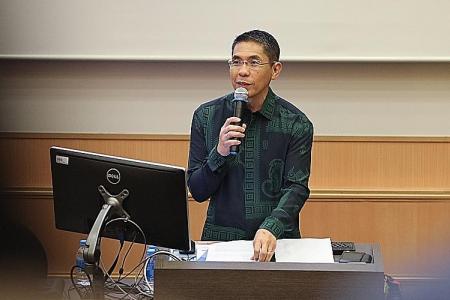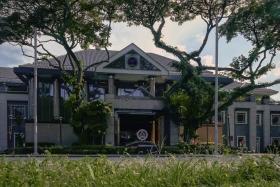Various factors could have cut short Singapore port's history
There are lessons to be learnt from our past as a port, says Dr Maliki
Singapore, a renowned ancient port for Asian trade, could have failed numerous times after Sir Stamford Raffles' arrival.
The Dutch could have attacked and wiped out the outpost; pirates could have driven merchants away; and a blight which wiped out nutmeg plantations could have spelt Singapore's end.
Even the advent of steam power could have changed sea routes, negating Singapore's importance.
In a speech yesterday, Senior Minister of State for Defence and Foreign Affairs Dr Maliki Osman, who opened a two-day conference on ancient harbours at the National University of Singapore (NUS), said: "At each critical point, Singapore could have taken a wrong turn and been replaced by another port located somewhere between Jakarta and Penang or Aceh."
Dr Maliki said there are lessons that can be learnt from history which can serve as a guide to what the future might become.
"Old frameworks and networks are now under pressure, and new ideas have to be found to keep them working and become even more efficient.
"This is one instance where greater understanding of the past may help people of the present to stand by their convictions in the face of negative criticism and figure out how to keep alive the values which have sustained the Silk Road of the sea for 2,000 years."
The conference Singapura Before Raffles: Archaeology And The Seas, 400BCE - 1600CE is organised by the NUS Department of South-east Asian Studies and supported by the National Heritage Board, in support of the Bicentennial.
It is the second conference on ancient harbours to be held in Singapore.
An earlier one was held in 2004.
Selected papers from the event will be compiled into a publication.
The conference, attended by about 180 people, brings together 18 international scholars to present their latest research on the subject of pre-colonial Singapore and its links to the maritime trade network.
The speakers will cover the themes of economy, technology and social context of early South-east Asian maritime trade; the origins and growth of maritime networks in the South China Sea and the Bay of Bengal and shipwrecks in the South China Sea and Java Sea which carried cargo between different parts of the region.
Dr Maliki said he hopes the conference will succeed in stimulating further research and collaboration between scholars working on sea trade.
"I also hope Singapore will continue to build on its position as a centre of maritime trade to develop a better understanding of how seaports have evolved over the centuries."
Get The New Paper on your phone with the free TNP app. Download from the Apple App Store or Google Play Store now



